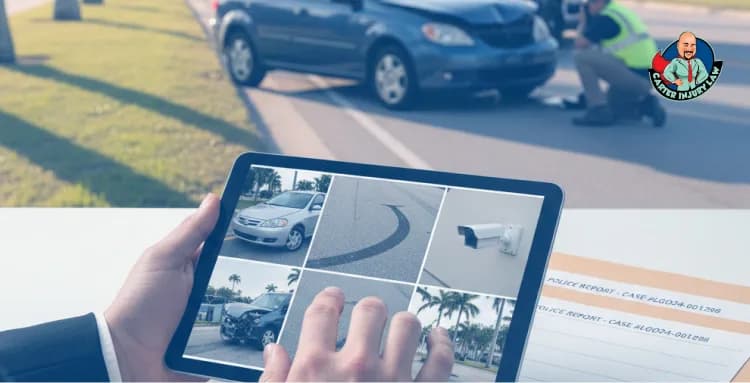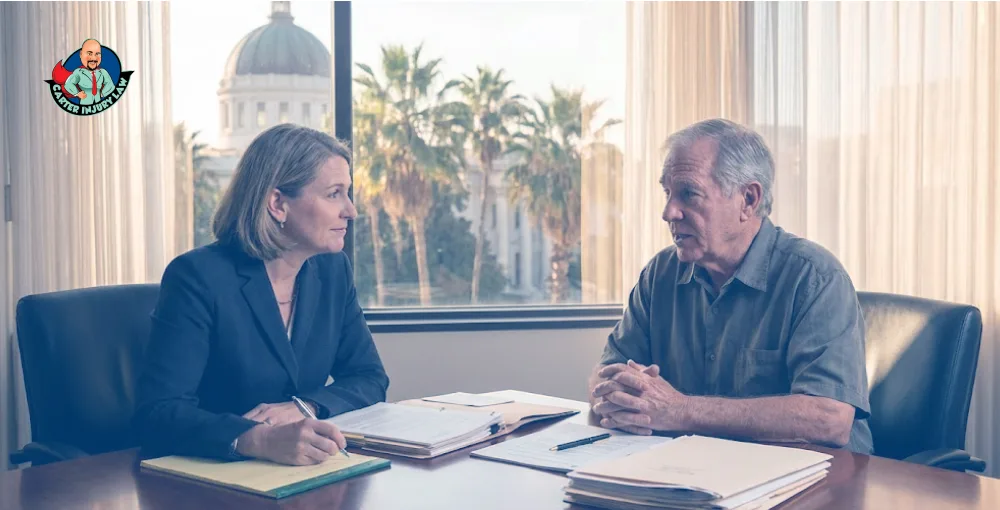Some phases in life don’t come with a clear sign or a closing door. If you’ve been injured, if you’ve done the hard part of showing up to every appointment, breathing through the pain, and waiting patiently through the silence... then you’re here. Not at the finish line, but at the edge of something else.
This in-between moment is what we call settlement negotiation preparation. By now, your body has started to tell its version of the story through MRIs, physician notes, pain scales, and progress charts.
And yet, strangely, just as the dust starts to settle, we ask you to do one more thing that most people forget. And that’s where everything starts to change...
1) Yes, You Still Need to See the Doctor And Here’s Why
So here’s where a lot of folks start to wonder,“Do I still need to keep seeing my doctor if I’ve been released from care?” And the answer? In most cases, yes.
Maximum Medical Improvement, or MMI, is a clinical term. It means your doctor believes you’ve recovered as much as you're going to, for now. But it doesn’t mean you're done hurting. Remember, if you’re still hurting, you’re still healing and you’ve got to keep treating.
Why? Because continuing treatment does 2 critical things at once. First, it helps your health, your function and your quality of life. And second, it helps your legal team build a stronger, clearer and more complete picture of your injury when we go up against the insurance company.
The medical records show your current condition, your pain level, and the fact that this injury didn’t just disappear overnight. Without that continuity, the insurance company gets room to argue. And trust me, they’ll take it.
In fact, a 2022 study published in Injury Epidemiology found that over 60% of accident victims who ended treatment early had worse long-term outcomes.
So even if your doctor says, “You’re released,” that often means you're now on an as-needed basis. It doesn’t mean “don’t come back.” It means you decide when you need to come back—and if the pain is still there, then yes, you do.
2) Paperwork Is not Only Paper; It’s Also Your Proof
Clients often assumes we’ve got everything we need to move forward. The bills, the records, the photos—they figure it’s all in the file. But in reality? Sometimes a key document or provider slips through the cracks. And when it does, it slows everything down.
The truth is, the settlement prep phase is all about proof. Not just that you were injured, but how it happened, how bad it was, how much it cost you, and how long it lasted.
So we gather everything. And I mean everything:
Ambulance transport reports
Emergency room visits
MRI and imaging results
Chiropractor and physical therapy notes
Acupuncture and massage therapy
Pain management or orthopedic records
Photos of injuries, vehicles, scenes—anything that helps us tell your story
These are the foundation of your case value. The insurance company doesn’t go on feelings or fairness. They go on paper. If it’s not documented, they don’t count it.
That’s why we’ll ask you more than once if you’ve seen any providers we don’t know about. A lot of times, folks forget to mention something like a one-off visit to a walk-in clinic or a massage therapist. But that one visit might contain a diagnosis, a pain level, or a key timeline detail that adds real weight to your claim.
3) Why One Doctor’s Word Could Damage or Save Your Case
Now, you might think a doctor just writes up your symptoms, maybe gives you a treatment plan, and that’s that. But in the legal world, what that doctor says on paper about your injury carries major weight. Especially when it comes to two words that really matter: permanency and causation.
Let me explain.
When a doctor says your injuries are permanent, insurance companies take notice. And when they say those injuries were caused by the accident we’re representing you for? That’s the gold standard. That’s what makes your case harder to ignore and harder to lowball.
Without that opinion, the insurance company has wiggle room. They might claim your injury came from something else or that you’re fine now, so no harm done. That’s why we need a treating physician to say in clear terms: Yes, this injury is real. Yes, it’s permanent. Yes, it came from this crash.
So what should you do? Talk to your doctor. Ask, “What does this report mean?” Ask, “Should I still come back?” And if you’re not sure what your doctor said or didn’t say—tell us. We’ll take it from there.
4) The Hunt for Hidden Bills And How We Find Them
According to the Health Care Cost Institute, one hospital visit can turn into 4 or 5 separate bills and not all of them are easy to spot.
You may have gone to the ER once, but behind the scenes, separate bills pile up from the ambulance, ER, radiology, doctors, and labs, none of whom coordinate with each other.
That’s why we dig. Our case managers and legal staff comb through every corner of the file. We ask:
Have we seen a bill from radiology?
Did the ER doc bill separately from the hospital?
What about that chiropractor you mentioned two months ago?
Any acupuncturist, massage therapist, walk-in clinic?
And if you saw someone and we didn’t get their records? That’s our cue to chase them down. Or better yet—let us know first. That saves time and makes sure nothing important slips through.
Then comes the insurance side of what was billed, what was paid, and what was adjusted.
Let’s say we get a $3,000 bill from a provider, but your health insurance already paid $1,200 and negotiated a discount. We need to know exactly what was paid, what was written off, and what might still be owed. That’s where lien resolution comes in.
If your insurance paid out, they may expect reimbursement once the case settles. That’s a lien. And we handle that negotiation too—so you’re not left paying more than you should. David Carter himself provides a more simplified explanation here.
5) The ‘Demand Letter—Your Story, Your Evidence, Your Voice
This is where we write your demand letter. And no, it’s not just a form or a quick email. It’s a detailed, aggressive, strategic letter that lays everything out for the insurance company inluding your injuries, your treatment, your losses, and the value of your claim.
It’s also the very first thing the insurance adjuster sees. That’s why we don’t cut corners. We make sure it hits hard and clear. Now, here's the part clients often ask about: “Do I get a say in that letter?” Absolutely.
Before we send anything, we will reach out and walk you through it. We’ll explain the numbers, the structure, and what happens next. If we need written permission to send it, we’ll get it. You’re part of the process every step of the way.
6) Delays, Deadlines & the Real World of Medical Records
By law, providers must send records within 30 days under HIPAA, which gives us the right to access them for your case. It’s frustrating but we handle this kind of thing all the time. So what do we do about it?
We follow up, we escalate, and in some cases, we’ll even pay the provider’s invoice just to get the records moving. Sometimes we’ll send the request by mail, by fax, by email—whatever it takes.
We know these delays can be frustrating, especially when it feels like nothing’s happening. But trust me—something is happening. Behind the scenes, we’re pushing until every piece of your file is where it needs to be because your case deserves to be complete, and the insurance company won’t take shortcuts on our watch.
7) We’re Not Just Getting Ready, We’re Getting You Paid
You’re still showing up to appointments. You’re still healing. You’re still keeping us in the loop. And on our side? We’re not sitting still. We’re building, reviewing, and verifying every form, every photo, and every bill. Every missed piece matters, and we’re making sure nothing gets lost.
We don’t send anything to the insurance company until your case is airtight. Just the full truth, ready to speak for itself.
And when the time comes, we’ll fight for the value of what you’ve been through because we know Florida, and we know it can deliver the justice. Still have questions? Call us. Free case evaluations. No fees unless we win.












